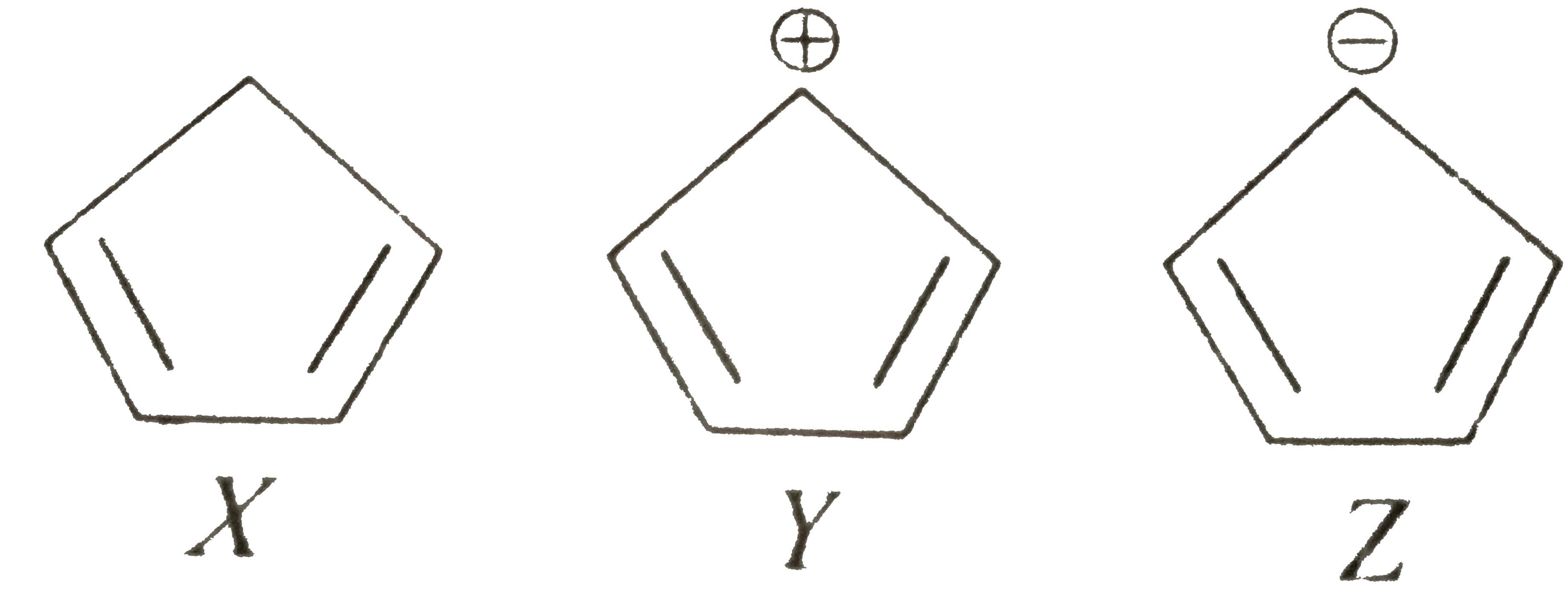Small quantities of compounds TX, TY and TZ are put into separate test tubes containing X, Y and Z solutions. TX does not react with any of these. TY reacts with both X and Z. TZ reacts only with X. The decreasing order of ease of oxidation of the anions X−,Y−andZ− is
since TX not react with any of the solution it means that X is least easily oxidized since TY reacts with both X and Z i.e Y−+X→X−+YandY−+Z→Z−+Y therefore Y− is most easily oxidized
since TZ reacts with only X i.e Z−+X→X−+Z therefore Z− is more easily oxidized than X− combining all the reult the decreasing order of oxidationn of anons follows the order Y−>Z−>x−
Topper's Solved these Questions
- REDOX REACTIONS BOOK - PRADEEPCHAPTER - REDOX REACTIONS EXERCISE - Problems
4 Videos
- REDOX REACTIONS BOOK - PRADEEPCHAPTER - REDOX REACTIONS EXERCISE - Multiple Choice Question
84 Videos
- REDOX REACTIONS BOOK - PRADEEPCHAPTER - REDOX REACTIONS EXERCISE - Very Short Answer Question
22 Videos
- P-BLOCK ELEMENTS (NITROGEN FAMILY)BOOK - PRADEEPCHAPTER - P-BLOCK ELEMENTS (NITROGEN FAMILY)EXERCISE - Competition focus jee(main and advanced)/ medical entrance special) (VIII. Assertion-Reason Type Questions)
10 Videos
- S-BLOCK ELEMENTS (ALKALI AND ALKALINE EARTH METALS) BOOK - PRADEEPCHAPTER - S-BLOCK ELEMENTS (ALKALI AND ALKALINE EARTH METALS) EXERCISE - Assertion -Reason Type Question (Type 2)
19 Videos
Similar Questions
Small quantities of compounds TX, TY and TZ are put into separate test tubes containing X, Y and Z solutions. TX does not react with any of these. TY reacts with both X and Z. TZ reacts only with X. The decreasing order of ease of oxidation of the anions X−,Y−andZ− is
View SolutionSmall quantities of compounds TX, TY and TZ are put into separate test tubes containing X, Y and Z solutions. TX does not react with any of these. TY reacts with both X and Z. TZ reacts only with X. The decreasing order of ease of oxidation of the anions X−,Y−andZ− is
View Solution
Knowledge Check
Small quantities of compounds TX, TY and TZ are put into separate test tubes containing X, Y and Z solutions. TX does not react with any of these. TY reacts with both X and Z. TZ reacts only with X. The decreasing order of ease of oxidation of the anions X−,Y−andZ− is
AY−,Z−,X−BZ−,X−,Y−CY−,X−,Z−DX−,Z−,Y−Small quantities of compounds TX, TY and TZ are put into separate test tubes containing X, Y and Z solutions. TX does not react with any of these. TY reacts with both X and Z. TZ reacts only with X. The decreasing order of ease of oxidation of the anions X−,Y−andZ− is
AY−,Z−,X−BZ−,X−,Y−CY−,X−,Z−DX−,Z−,Y−Small quantities of compounds TX, TY and TZ are put into separate test tubes containing X, Y and Z solutions. TX does not react with any of these. TY reacts with both X and Z. TZ reacts only with X. The decreasing order of ease of oxidation of the anions X−,Y−andZ− is
AY−,Z−,X−BZ−,X−,Y−CY−,X−,Z−DX−,Z−,Y−
Of the three metals X,Y and Z here X reacts with cold water, Y with hot water and Z with steam only. Identify X,Y and Z and also arrange them in order of increasing reactivity.
View SolutionSmall quantities of compounds TX, TY and TZ are put into separate test tubes containing X, Y and Z solutions. TX does not react with any of these. TY reacts with both X and Z. TZ reacts only with X. The decreasing order of ease of oxidation of the anions X−,Y−andZ− is
View SolutionThe order of stability of compounds X, Y and Z :

View SolutionA mixture containing substance 'X' and 'Y' is mixed with a substance 'Z' . If Z' reacts with both X and Y then, select the correct option (s).
View SolutionOf the three metals X,Y and Z here X reacts with cold water, Y with hot water and Z with steam only. Identify X,Y and Z and also arrange them in order of increasing reactivity.
View Solution
